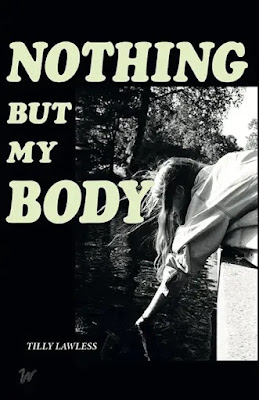This book is at once so unfamiliar to me, both personally and geographically—the Australian landscapes, animals and wildfires entirely unavailable to me in my own experience, and not readily accessible in my imagination—and yet is incredibly relatable and tender. "Maddy's" sense of humanity and compassion for the people she encounters is felt throughout and she considers the hardships or experiences of her friends, other sex workers (and how their circumstances differ from her own, for example as an immigrant or older woman), and some of her clients, such as a man who spent years at a detention centre seeking asylum. Through her capacity for love and her ultimate resolve to live, even in the face of climate change, coronavirus, and personal sorrow, "Maddy", who wants to become a mother, finds cause for hope, again and again.
Words, images and documents by or collected by Jessica Schouela
Sunday, 16 October 2022
Tilly Lawless, Nothing But My Body
Tilly Lawless's feminist novel Nothing But My Body is about many things: sex and sexuality, class, race, immigration, gender, colonialism, climate change, addiction, mental health, physical health and bodily risk, femininity and masculinity, love, relationships, heartbreak, infatuation, friendship, motherhood. Like her narrator, Lawless is a queer Sydney-based sex worker and shields little from her reader, explicitly chronicling "Maddy's" (we don't learn the narrator's real name and are only given her work name) days at work, a variety of clients with different stories, bodies and treatment of her and her body.
Nothing But My Body's narrator challenges middle-class assumptions about intent, desire, money as well as intelligence, as "Maddy" surprises clients with her knowledge of history (and her degree) and discussions during sex on things like GDP or medical tests and precautions. Lawless is not one for easy answers and that is because easy answers are not true or real - she pushes back against people's urge to neatly classify things as one thing but not another (such as the different shapes and forms of queerness or the inconsistent and impure workings of pleasure) bred from the impulse to facilitate their own more comfortable digesting and understanding of that which they cannot make sense of or which scares or threatens their stability or sense of self.
Subscribe to:
Post Comments (Atom)


No comments:
Post a Comment